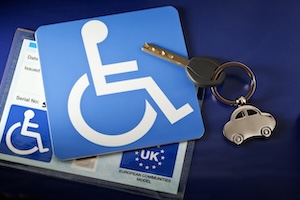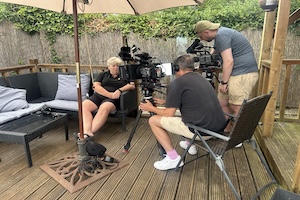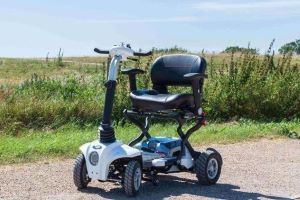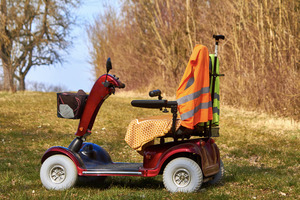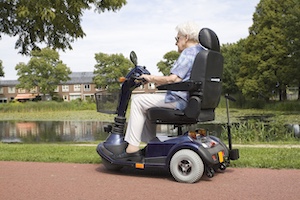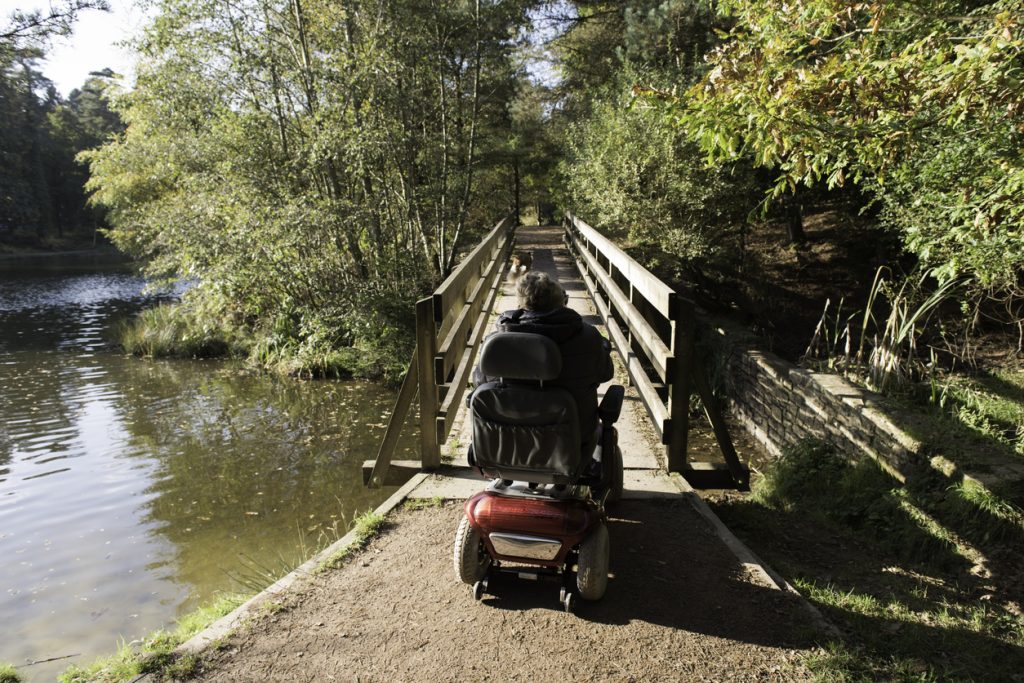Experts are warning of a growing crisis facing mobility scooter users, as they contend with increasing road dangers and deep-rooted social stigma.
Mobility scooter insurance intermediary, Surewise, has joined forces with charities, mobility retailers and academics to urge the Government to act on rising casualties, inadequate infrastructure and the growing tide of hostility and verbal abuse faced by many users.
Despite being legally used by people with disabilities and mobility issues, mobility scooters are often seen as a nuisance or even a menace – not the lifelines they truly are.
“People shout at me in the street – telling me I shouldn’t be using a scooter, that there’s nothing wrong with me, or that I’m just lazy,” said Dean Brook (56), from Nuneaton in Warwickshire.
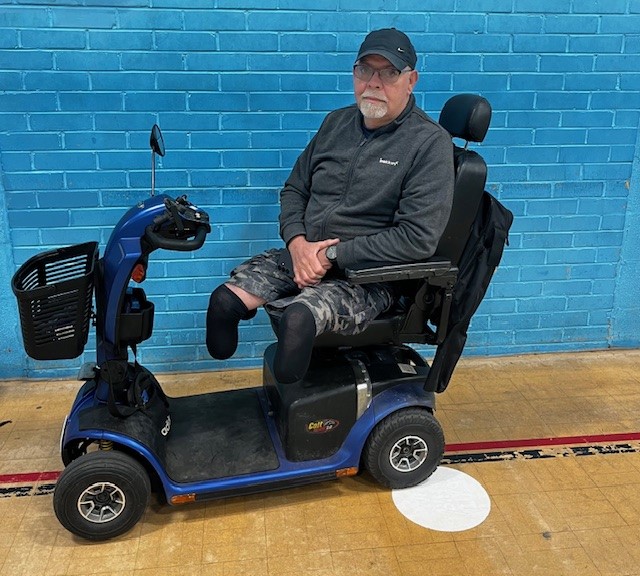
“I’ve lost count of how many times I’ve had to lift my trouser leg to prove to complete strangers that I have prosthetic limbs. It’s humiliating.”
Mr Brook began using a mobility scooter after losing both legs below the knee due to complications from type 2 diabetes and neuropathy. Prior to that Dean was fit and healthy, worked full time and enjoyed playing football.
But since launching the campaign, it has become increasingly clear that stigma, social hostility and everyday obstructions pose an equally serious threat to mobility scooter users’ wellbeing and independence as the physical dangers on the roads.
David Dixon (65), from Hampton Magna, Warwick, suffered a major stroke in 2023, leaving him dependent on his mobility scooter to maintain his independence.
“People shout at you on the road to get on the pavement – and on the pavement to get off it. It’s constant.“

Surewise launched the Safer Mobility Campaign in April 2024 after uncovering a troubling 20 per cent year-on-year rise in serious injuries and deaths involving mobility scooter users over the past decade. In 2023 alone, 16 mobility scooter users were killed in collisions – nearly double the nine fatalities recorded in 2022.
“Cars park across pavements, forcing me to reverse or find a drop kerb just to get by. Overgrown hedges make it worse – sometimes they’re right in your face.”
Before his stroke, David drove HGVs and coaches for a living and was involved in vehicle testing at the MIRA testing facility in Nuneaton.
Richard Hannan, Director of Surewise, said: “These are already vulnerable people, many of whom face serious medical conditions – and yet they’re insulted, ignored, mocked and blocked, simply for trying to live independently.
“This inequality in perception and treatment can no longer be ignored. We need formal recognition, national guidance and visible support to change how mobility scooter users are seen – and to make our streets safer and more inclusive for everyone.”
The call is backed by organisations across the disability, research and retail sectors – including Wheels for Wellbeing, Nottingham Trent University, Warwickshire Road Safety Partnership and Mobility and Lifestyle.
Kate Ball, Campaigns and Policy Lead at Wheels for Wellbeing, a Disabled People’s Organisation working to improve access to walking/wheeling, cycling and multi-modal journey making for all Disabled people, said: “Powered, e-assisted and unpowered mobility aids including mobility scooters, wheelchairs, wheelchair power add-ons, cycles and micromobility devices are critical for enabling Disabled people to get to work, to education, to run errands, care for ourselves and our families, and to take part fully in society.
“We need attitudes and the law to change so all Disabled people can safely use the mobility aids that work for us to make the journeys we need to.”
Andy Collins, Branch Sales Manager at Mobility and Lifestyle in Nuneaton, sees the impact of this stigma on a daily basis.
He said: “There are more and more scooters out there now. It’s become the norm, and users deserve to feel entitled and empowered to use them without fear or judgement.
“Unfortunately, what we see far too often is that they can’t win. They get abuse on the pavements, and they get abuse on the roads. On top of that, infrastructure problems and busy town centres put people off even leaving their homes.
“Over the years, we’ve known several customers involved in crashes – including one who was tragically killed. These aren’t isolated incidents. They reflect a much wider issue that needs urgent attention.”
Legally, mobility scooters can be used on the pavement, and Class 3 scooters are permitted on the road – although many road users are unaware of these rules. Mobility scooters are not legally allowed in cycle lanes, yet this too is often misunderstood.
Campaigners say this confusion fuels public hostility, with users frequently shouted at to “get off the road” or “off the pavement” – sometimes during the same journey.
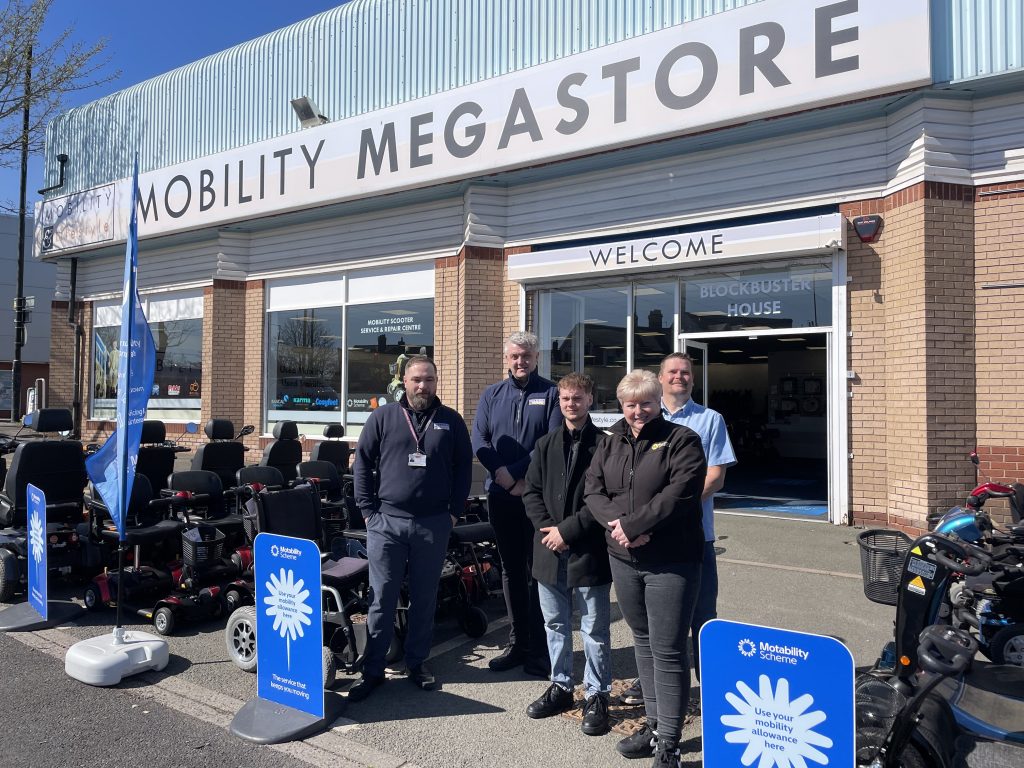
The Safer Mobility campaign is urging the Department for Transport to update the Highway Code to explicitly include mobility scooter users in the “Hierarchy of Road Users” – a framework introduced in 2022 that prioritises the safety of the most vulnerable.
Despite their vulnerability, mobility scooter users remain absent from this guidance, putting lives at risk and reinforcing negative perceptions.
They are calling for better public education on the rules and rights, so that mobility scooter users can travel safely without fear or confrontation.
Professor Duncan Guest, Head of Psychology at Nottingham Trent University, is leading a research study into the lived experiences of mobility scooter users.
“Our research shows that after access difficulties, the negative attitude of others to mobility scooter users is the biggest disadvantage experienced by users. They feel they are seen as a nuisance, treated with hostility and looked down on and treated as second-class citizens.
“Given that users are already mobility impaired and vulnerable, it is clear that the way society thinks about and treats mobility scooter users has to change.
“This also needs to go hand in hand with education about safe use of mobility scooters both for users and non-users, so that collectively users of the road and pedestrian areas are better able to understand mobility scooter behaviour.”
Sharon Hilton, a retired police officer of 30 years and now part of Warwickshire Road Safety Partnership, has become a firm supporter of the Safer Mobility Campaign.
She said: “Attitudes towards mobility scooter users differ starkly from the way wheelchair users are treated, despite there being no real difference in legal entitlement or purpose.
“Mobility scooter users face real risks every day, yet are still treated with suspicion or even contempt, simply for trying to live independently.
“The Safer Mobility Campaign is so important because it’s finally giving these individuals a voice – and pushes for the protection, respect and recognition they deserve.”
